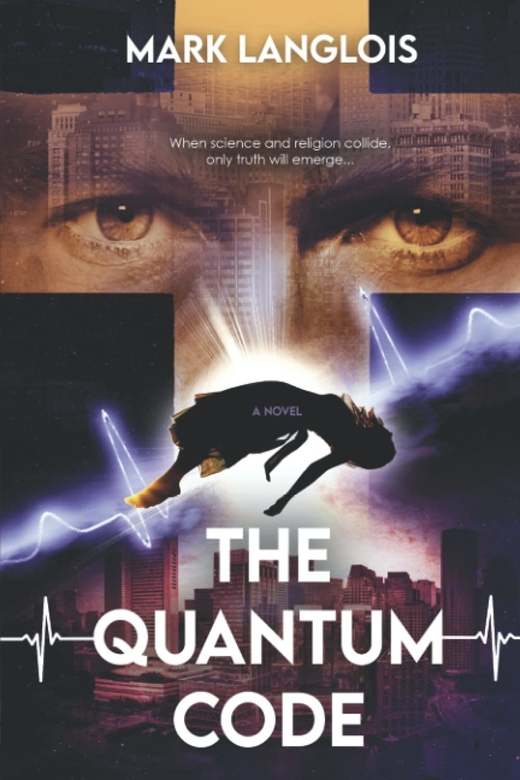A slow-burning thriller that mixes modern science with ancient prophecy and philosophy, The Quantum Code by Mark Langlois is an ambitious novel that will leave readers with as many questions as answers.
Two physicians from Christ Hospital, Jason Dolan and Sabrina Hawthorne, become inexplicably tangled up in a sprawling plot after Dolan is falsely accused of stealing narcotics and selling them on the street. When the FBI arrives at the hospital after a terrorist attack, Dolan’s arrest seems imminent, pushing him into the desperate decision to clear his own name as a vigilante investigator. Following a rapidly expanding ring of clues that race up the chain of power to an ideological revolution at the rotten heart of Rome, this compelling pair of amateur sleuths make for excellent protagonists.
With The Swiss Guard doubling as mercenaries in the streets of Boston, cardinals being murdered in compromising positions, and a new pope ascending on the horizon, the good doctors are in well over their heads, but refuse to give up their desperate search for truth. As the shocking plot comes into focus, and the Vatican’s true aim becomes clear, it falls on Dolan to uncover the secret of consciousness that God’s representatives on Earth would be happy to kill for.
There is still a great deal of secrecy, formality, and ancient tradition when it comes to The Pontifical Academy of Sciences, which gives the book the sense of unveiling secrets. This book’s blurring of unbelievable fact and fanciful fiction is reminiscent of Dan Brown’s blockbuster thrillers, as is the expansive and sinister plot that implicates the Holy See in a global conspiracy, not to mention the title, but the story is compelling in its own right.
The plot may be twisted in an exciting number of directions, but there are also a myriad of plot holes and very loose connections that drive the story forward. Characters leap to convenient conclusions that seem unlikely, but end up panning out, making it feel like the narrator is occasionally cutting corners in the storytelling. Some of the dialogue doubles as exposition, presenting philosophical conflicts, religious history, and scientific information for readers; in most cases, this works well, but some of the extended conversations don’t ring with authenticity.
More problematically, the editing in the book is sorely lacking, with a grammatical error in the very first sentence, which sets the tone for the quality of writing throughout. The prose is peppered with tense disagreements, missing commas, run-on sentences, singular/plural disagreements, fragmented syntax, and other errors that undercut the book’s sense of authority. The story itself is engaging and well-constructed, with a plot that feels classified, controversial, and clever all at once, but the unpolished final product doesn’t do these aspects justice. A thorough sweep for editing errors is essential, as is a more in-depth pass for unnecessary lines of dialogue, clunky bits of internal monologue, and heavy-handed narration that at times talks down to readers.
All told, though the writing is not nearly as robust as its storyline deserves, this enigmatic riddle of a thriller is still a gripping tale that shows a knack for circuitous storytelling and surprising reveals.
Book Links
STAR RATING
Design
Content
Editing
Get an Editorial Review | Get Amazon Sales & Reviews | Get Edited | Get Beta Readers | Enter the SPR Book Awards | Other Marketing Services
























Leave A Comment